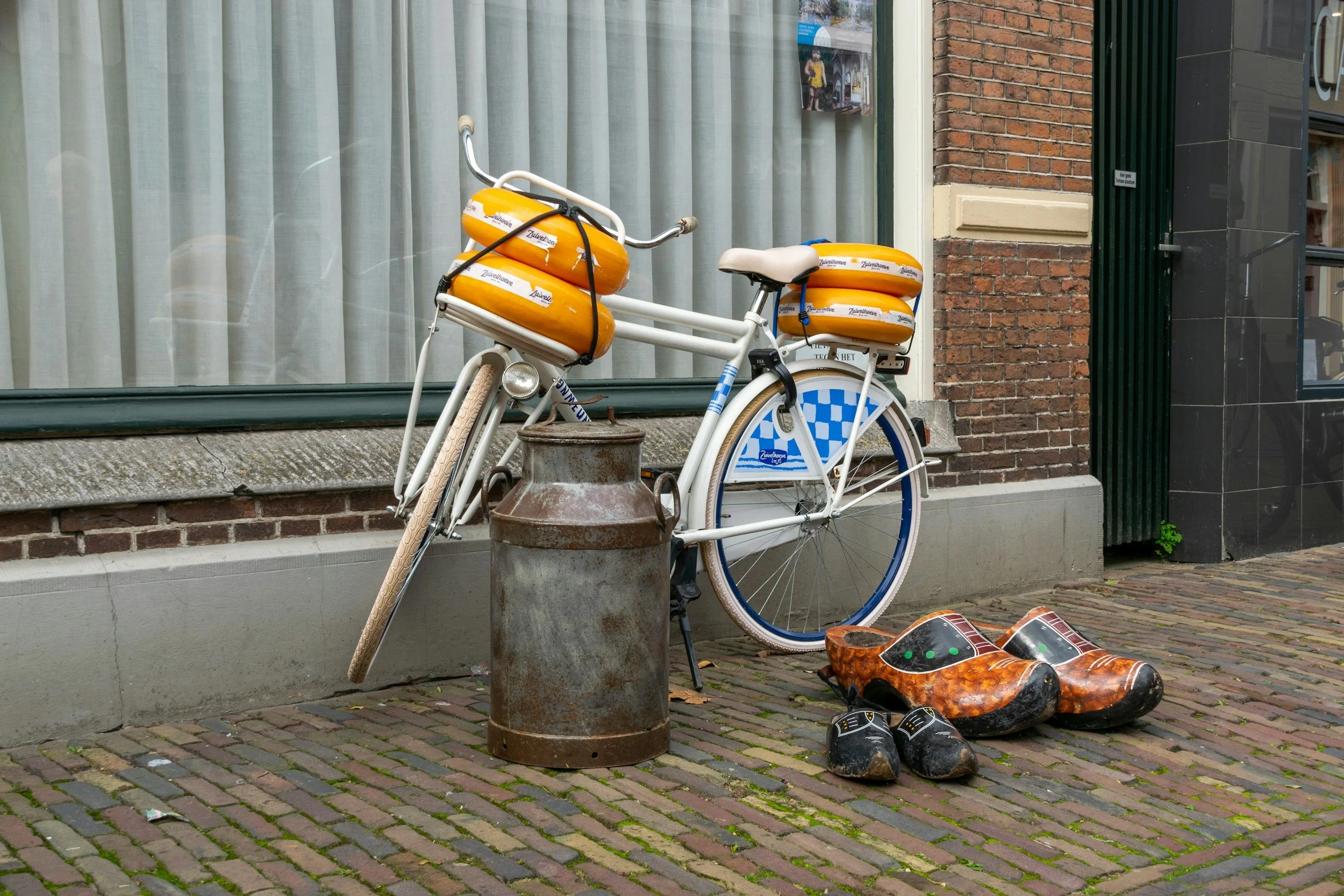12 Common Dutch Phrases Explained
1. Doei: just like “bye” this is the informal way to say goodbye and is also often doubled, as in “Doei, doei!”.
2. Geniet ervan!: one of the many phrases that reflects the congeniality of Dutch culture, this translates to “Enjoy!” and is heard frequently in conversation.
Person 1: Wat doen jullie vanmiddag? (What are you guys doing this afternoon?)
Person 2: We gaan lekker fietsen. (We’re going on a nice bike ride.)
Person 1: Geniet ervan! (Enjoy it!)
3. Hup, hup!: an imperative used to encourage action, usually in children. It means something like, “Get going!” or “Get a move on!”.
4. Ja, hoor: An affirmative statement and means simply, “Sure!”, “Absolutely!”, or “Sure, don’t worry about it.”
5. Jammer, wat jammer: used alone or paired with wat, this means “What a shame!” or “Oh, that’s too bad.” It’s sometimes also paired with genoeg (enough), as in jammer genoeg (unfortunately enough).
Person 1: Heb je het boek gekocht? (Did you buy the book?)
Person 2: Nee, jammer genoeg was het overal uitverkocht. (No, unfortunately enough it was sold out everywhere.)
Person 1: Wat jammer! (What a shame!)
6. Kom op!: this literally translates to “Come on!” and just like in English it’s an expression of pure annoyance. It’s what you say when you get splashed by a puddle, the tram is late or your S.O. forgot to buy toilet paper…again.
7. Leuk: translaties to “nice” or “great” and, just as in English, it’s used frequently as a casual response in conversation. It’s often paired with another word, wat leuk (how nice) or zo leuk (so nice). Being an adjective, it can also be used to describe anything from an event, Het was echt leuk! (It was really nice), to an activity, Wat een leuk spel. (What a nice game).
8. Ogenblikje: translates to “the blink of an eye”— not to be confused with “wink” (that’s knipoog). Ogenblikje, alstublieft is a polite way of saying “Wait a moment please.”
9. Pas op!, Let op!: pas op and let op both translate to “pay attention”. It’s urgency and immediacy that distinguish the two. A registration form might warn you to fill in your information completely by saying “Let op! Hebt u alles goed ingevuld?” (Attention: have you filled in everything completely?), whereas if someone is about to step in dog poop you might yell, “Pas op!”. Pas op is the imperative form of the verb oppassen, which incidentally also means “to babysit”.
10. Prima: means “great” or “fine” and is often the response to an agreement or plan.
Person 1: Ik kom rond 5 uur langs. (I’ll stop by around five.)
Person 2: Prima! (Great!)
11. Toch: is a frequently heard word with seemingly endless meanings. When used alone as a question, “Toch?”, it translates to “Right?” or “Isn’t it?” but there’s a catch: do not answer back with an affirmative “Toch!”, or people will laugh at you. It’s better to think of it as “Am I right?” or “Isn’t it true” to which you would reply with some version of “yes”. But toch doesn’t end there…It can also be used in place of “still” or “however”. Or as a modifier to make statement sound less harsh.
12. Zeker: zeker and zekerwel are commonly heard affirmative statements that translate to “certainly” or “absolutely.
Person 1: Kom je naar de borrel?
Person 2: Zeker!


